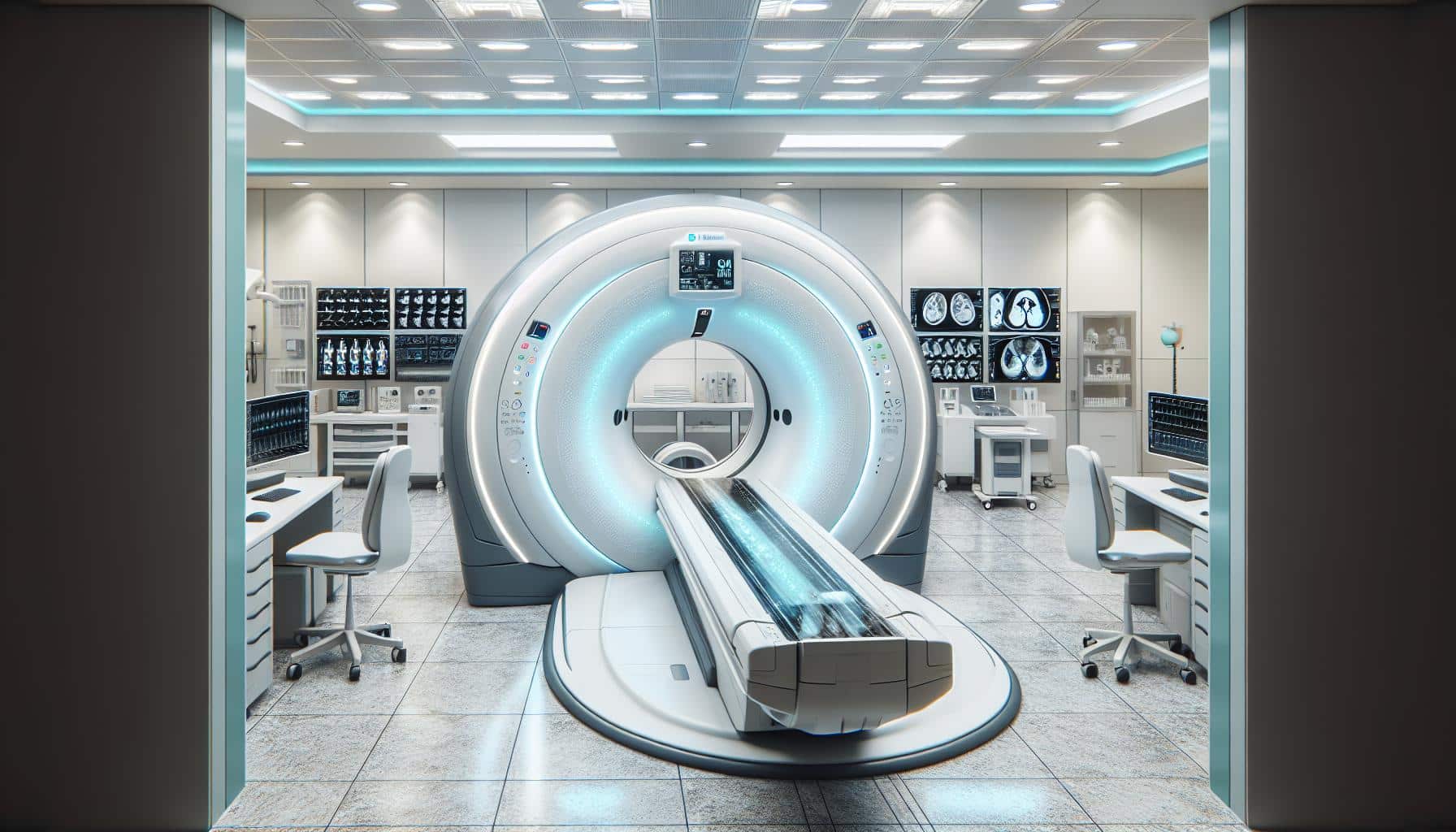The Potential of AI in Cardiovascular CT
Artificial intelligence (AI) has tremendous potential in revolutionizing the field of cardiovascular computed tomography (CT). AI technologies such as machine learning and deep learning can be used to enhance the diagnostic and decision-making capabilities of CT scans. By mimicking human consciousness and continuously learning and improving, AI has the potential to provide accurate and precise interpretations of CT images, leading to improved diagnosis and treatment planning for cardiovascular diseases.
Expanding the Application of CCTA with AI
Coronary CT angiography (CCTA) is a non-invasive technique used for the screening of coronary heart disease. With the application of AI, the scope of CCTA has expanded. AI algorithms can optimize the image quality of CCTA scans, leading to clearer and more detailed images. In addition, AI can automate the calculation of important parameters such as calcification score, coronary stenosis, and plaque components. This automation reduces the workload of clinicians and improves the efficiency of diagnosis and treatment.
Standard AI Techniques in Cardiovascular CT
Several standard AI techniques have been developed for the analysis of cardiovascular CT scans. Machine learning algorithms, such as support vector machines and random forests, can be used to classify and predict patient outcomes based on CT imaging data. Deep learning techniques, including convolutional neural networks, can extract complex features from CT images and enable accurate segmentation and classification of cardiovascular structures. These AI techniques provide valuable insights into the anatomy and physiology of the heart, allowing for better diagnosis and prognosis of cardiovascular diseases.
Current Research and Progress of AI in Cardiovascular CT
Research in the field of AI in cardiovascular CT is rapidly advancing. Numerous studies have demonstrated the effectiveness of AI algorithms in improving the accuracy and efficiency of CT image interpretation. For example, AI algorithms have been developed to quantify and evaluate plaque components, perivascular and pericardiac fat, and non-invasive CT-derived fractional flow reserve (CT-FFR) and myocardial perfusion. These advancements have the potential to revolutionize the field of cardiovascular imaging and lead to personalized and precise treatment strategies for patients.
Future Perspectives of AI in Cardiovascular CT
The future of AI in cardiovascular CT looks promising. The application of AI algorithms in clinical practice is expected to improve the management and efficiency of cardiovascular diseases. AI has the potential to provide patients with more accurate, safe, and appropriate diagnosis and treatment methods. As AI technology continues to advance, it is anticipated that AI algorithms will become an essential tool in cardiovascular imaging, guiding clinicians in making important diagnostic and treatment decisions. However, further research and validation are needed to ensure the reliability and effectiveness of AI algorithms in real-world clinical settings.
In conclusion
The application of AI in cardiovascular CT holds great promise for improving the diagnosis and treatment of cardiovascular diseases. With the development of standard AI techniques and ongoing research in the field, AI algorithms have the potential to optimize and reshape the clinical diagnosis pathways in cardiovascular imaging. The future of AI in cardiovascular CT is bright, and it is expected to revolutionize the field and provide patients with more accurate and personalized care.
Analyst comment
Overall, the news is positive. The potential of AI in cardiovascular CT is seen as a promising development that can revolutionize the field and improve diagnosis and treatment. AI algorithms can enhance the capabilities of CT scans, expand the application of CCTA, provide valuable insights, and improve the accuracy and efficiency of image interpretation. The future of AI in cardiovascular CT looks bright and is expected to lead to more accurate and personalized care. However, further research and validation are still needed to ensure the reliability and effectiveness of AI algorithms in real-world clinical settings.













